Ahmedabad, Surat: In the December of 2001, Rafique Ahmed Rafid Shaikh was a 31-year-old automobile engineer who had just started his own workshop. Saqib M. Khalid Faruqui, then 20, was about to land his first job having just graduated with a degree in medical transcription.
The two men, who had never met each other, were attending a seminar in Surat to deliberate on ways to empower the Muslim community.
Instead, the sequence of events on the night of 28 December 2001 would alter their futures forever. It would set off an ordeal of 20 years — in which the men spent time in jail, got bail, moved homes, lost jobs and now struggle to make ends meet.
In the 20 years since that night, Shaikh’s automobile dreams are now limited to a pushcart in which he sells food and clothes. Faruqui has nothing to do with healthcare and, instead, sells greeting cards.
The only solace — they are no longer the “terrorists” they were once accused of being.
Charges and acquittal
Shaikh and Faruqui were among 127 Muslim men participating in the seminar, organised by the All India Minority Education Board in Surat, when police stormed the venue and arrested everyone in sight.
All 127 were accused of being members of the banned Students Islamic Movement of India (SIMI), with police claiming that the gathering was a front to recruit more SIMI members. They were all charged under the Unlawful Activities (Prevention Act), 1967.
The allegations stuck for 20 years. Until a Surat court on 6 March 2021 acquitted all 127 people of the charges.
“The court has found that the accused had gathered to attend (an) educational programme and had not carried any weapons. The prosecution has also not proved that the accused had gathered for any activity related to SIMI,” the Surat court said.
“Even during the raids, not a single member out of 123 arrested from the spot tried to escape. Neither do the seized documents have any relevance with SIMI.”
The acquittal has brought a sense of relief for those accused but it doesn’t reverse the 20 years of damage they’ve had to endure.
“I’m grateful to the honourable judge for delivering this verdict and acquitting all of us. But who will return the 20 years we have lost? Who will compensate us for what we have gone through?” asked Shaheedul Hasan, a telecommunications engineer who lost his job soon after his arrest.
“We were called terrorists and anti-nationals. We lost jobs and honour, and we can’t forget our trauma. Justice late is justice denied.”
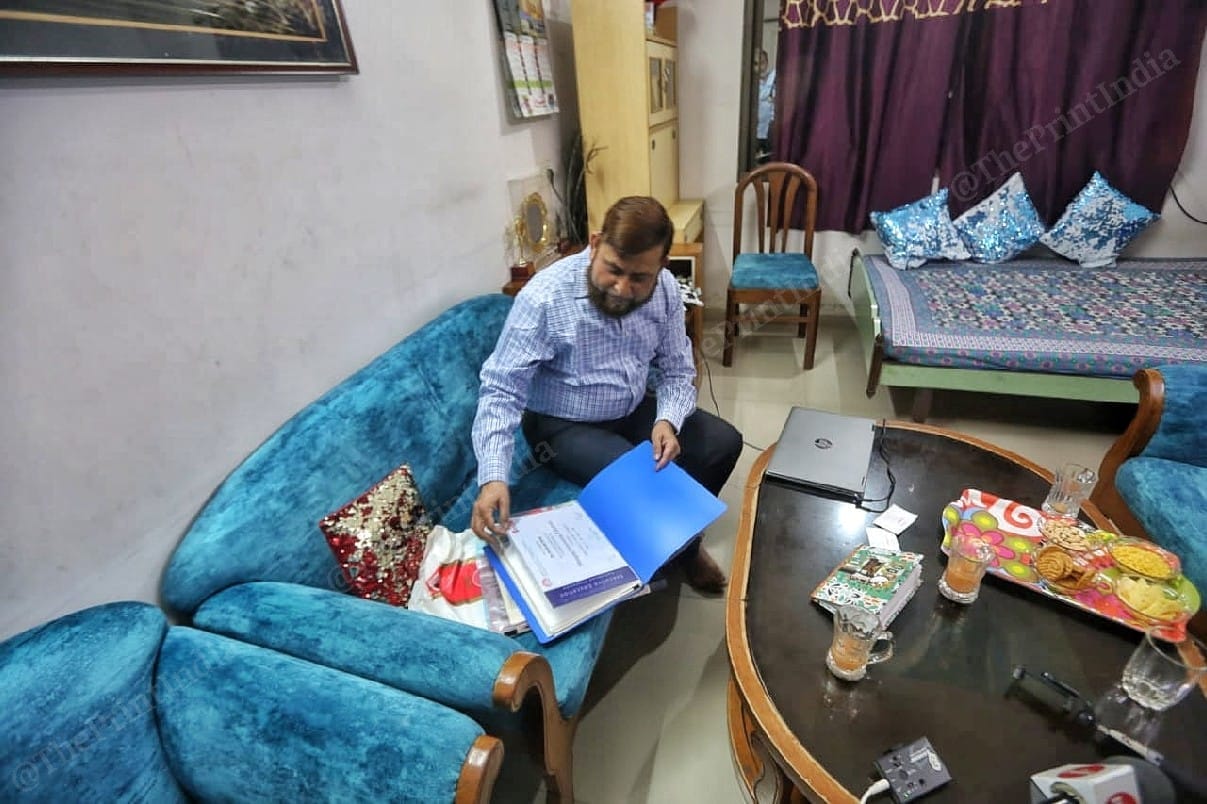
Lives transformed
None of those invited predicted the seminar would change the course of their lives.
The event was the All India Minority Education Board’s eighth educational seminar, and was to discuss a variety of issues related to the educational status of Muslims.
“I still remember the sessions that were planned — how to develop the community after graduation, what are our rights to education, what are our rights under the Constitution, and how can we empower the community with education,” said Rafique Ahmed Rafid Shaikh, now 50 years old.
Shaikh had attended the event, like many others, keen on learning more about how education could serve the community. That was before police stormed the venue.
“At night, as we were sleeping, the cops came and took us to the police station,” he told ThePrint. “We only found out the next day why we were being arrested. I spent 11 months in jail before getting bail, but that didn’t make things any easier.”
Once out, Shaikh could no longer afford the rental of the workshop he had created. He took to selling whatever he could get his hands on — fruits, tea, and, of late, clothes, on a cart which he pushes in a market close to his home. In the 20 years since this case was registered, he says he has had to change houses 17 times because landlords didn’t want him living in their property.
“We used to live at Sindhkheda in Maharashtra’s Dhule district but the bail order stated he had to mark attendance with Surat’s Athwa Lines police station every two weeks,” said Shaikh’s wife, Suraya. “That meant commuting over 200 km one way with two small kids. We decided to move to Surat to reduce the commute. It was the worst years of our lives.”
Asif Sheikh, then an aspiring journalist, had joined the seminar after he heard about it in his neighbourhood. He had a Master’s degree in development communication and an interest in social causes.
“After being released, I faced harassment from the police, who would call me any time. When Hindu festivals would take place, they would call and ask my whereabouts as if I was a criminal,” he said.
“I was rejected multiple times for marriage, and only got married at 38. I couldn’t have kids because of this. My colleagues have gone ahead in life, and I’ve had to watch from the sidelines.”
Sheikh secured bail after 11 months in jail, and applied to various jobs — including as a teacher in a development studies institute — before being forced to resign after employers found out about the case. Now, Sheikh sells spices for a living, and opens a stall selling educational books about Islam at Ahmedabad’s National Book Fair once a year.
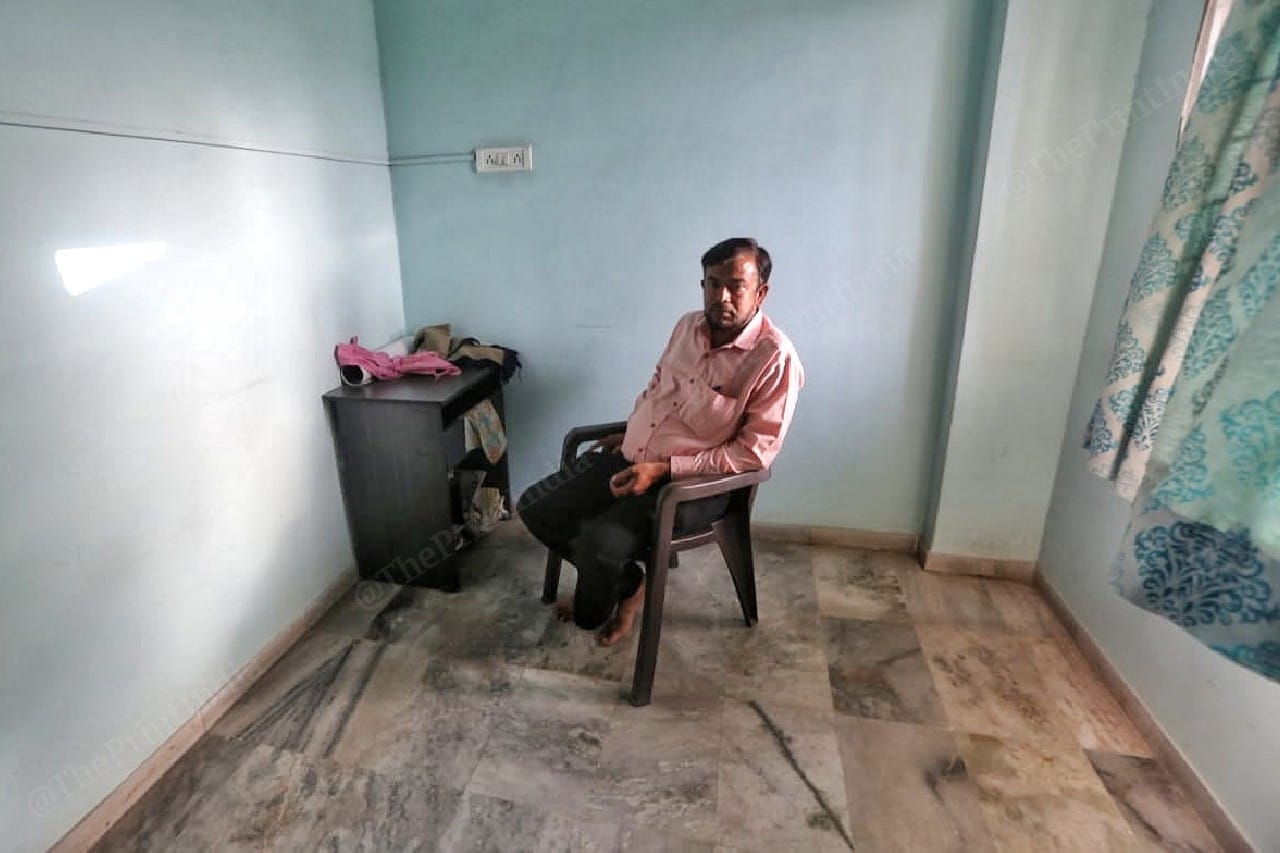
“Of course I worry about being targeted again. But if we don’t speak up for ourselves, who will? The answer is no one, and we learned it the hard way,” he said.
Saqib M. Khalid Faruqui, now 40, said that by the time he got an offer letter, he was in jail, and the opportunity to earn for his family was stymied. Now he designs business and greeting cards from a small office space under his home in Ahmedabad.
“The police had even conducted a raid while he was in jail. I was alone with my daughter at the time, and no female police officer was present,” Saqib’s 80-year-old mother, Zebunnisha Faruqui, told ThePrint. “They barged in, in the afternoon, found nothing, and left.”
Also read: UAPA doesn’t stop courts from granting bail when fundamental rights are violated, SC says
Why the case took so long
The case took 20 long years because of several reasons — the sheer number of accused who had to be summoned and whose statements had to be recorded, the transfer of multiple judges mid-trial, and a lack of urgency given all were awarded bail 11 to 14 months after their arrest.
“The process is what led to a delay. There are so many reasons: Sometimes the accused or witnesses were absent in the court, and special prosecutors assigned by the government also kept changing,” public prosecutor and government pleader Nayan Sukhadwala, who represents the government in the case, told ThePrint.
“I am the last one to be appointed in this case, but in the middle, one had resigned to become an MLA.
“We have requested for certified copies of the judgment, and after perusal of the judgment, we will file an appeal if it is a good case for appeal,” he added.
Those accused were booked under sections 10 (punishment for being members of an unlawful association), 13 (punishment for unlawful activities) and 15 (terrorist act) of the UAPA law of 1967, a much less stringent iteration of what it is today. The maximum punishment under section 10 — the only section that held for a majority of the trial — was two years.
Given the lack of evidence, the Gujarat High Court and Supreme Court of India — which was approached after the prosecution claimed further evidence against three people — both gave bail to the accused.
“The prosecution presented over 20 witnesses, but not one could concretely say that they were part of SIMI or promoting SIMI,” said advocate M.M. Shaikh, one of the lawyers from the defence team, told ThePrint. “Ultimately, there was no evidence against them, and the court took cognisance of that.”
P.K. Roushan, then Inspector General of Police and among those involved with the investigation, told ThePrint a part of the reason why the evidence didn’t hold up was that witnesses turned hostile.
“The witnesses who signed the panchmana had turned hostile, as it so happens in these cases,” he said. “Once they had turned hostile, there was no way we could prove. The delay in the process also meant some witnesses could not be located, or had died.”
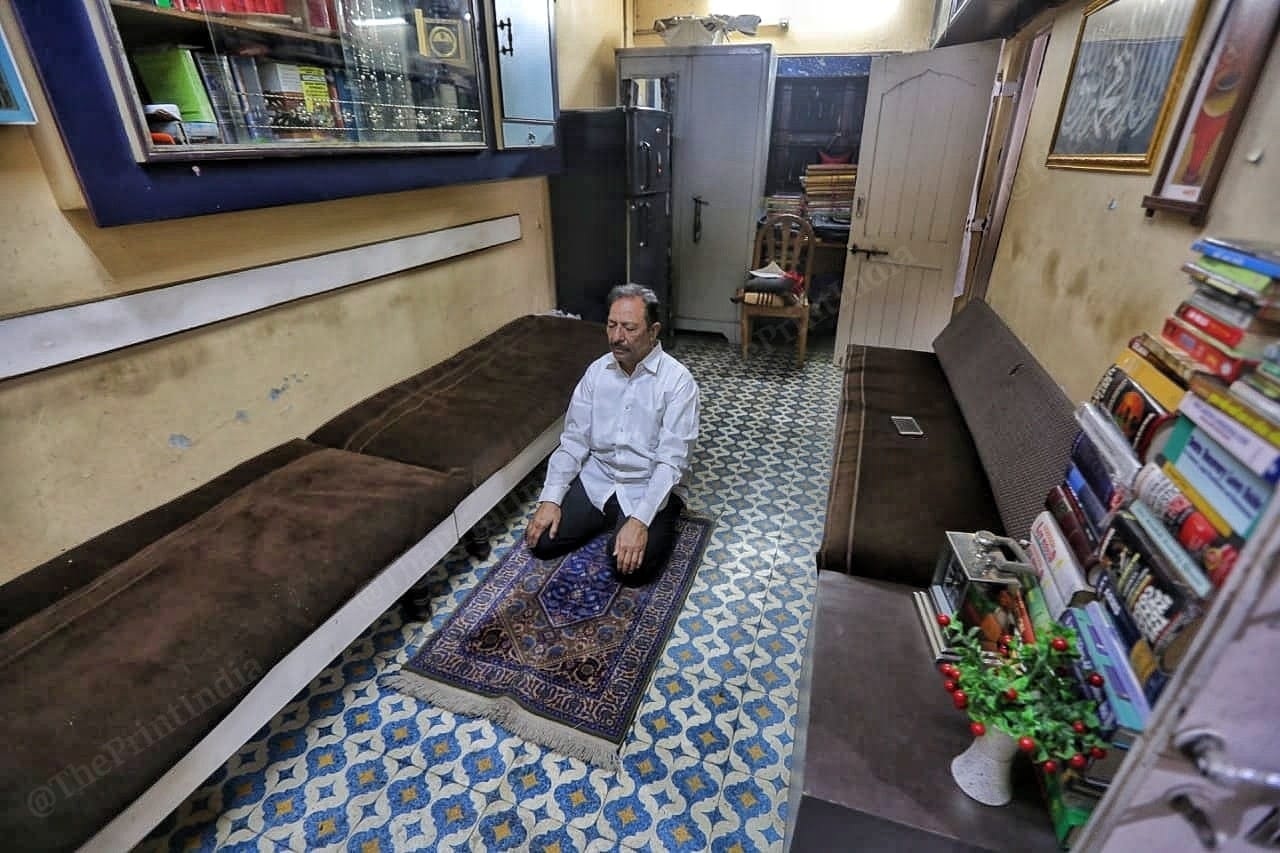
Flaws in the case
Those accused say the case betrayed a shaky foundation since the very beginning.
Asif Shaikh Sharbati, another accused, hadn’t even attended the seminar but was arrested under the same charges as everyone else.
“I was somewhere in Maharashtra with my brother-in-law. I had been invited for the seminar, and I was planning to go, but I heard everyone had been arrested so decided not to,” Sharbati told ThePrint.
Sharbati had a permanent job as a primary healthcare worker with Surat’s department of vector-borne diseases. The case resulted in him losing his job, and he now drives an autorickshaw to earn a living. His wife, Yasmin, took up stitching to help make ends meet.
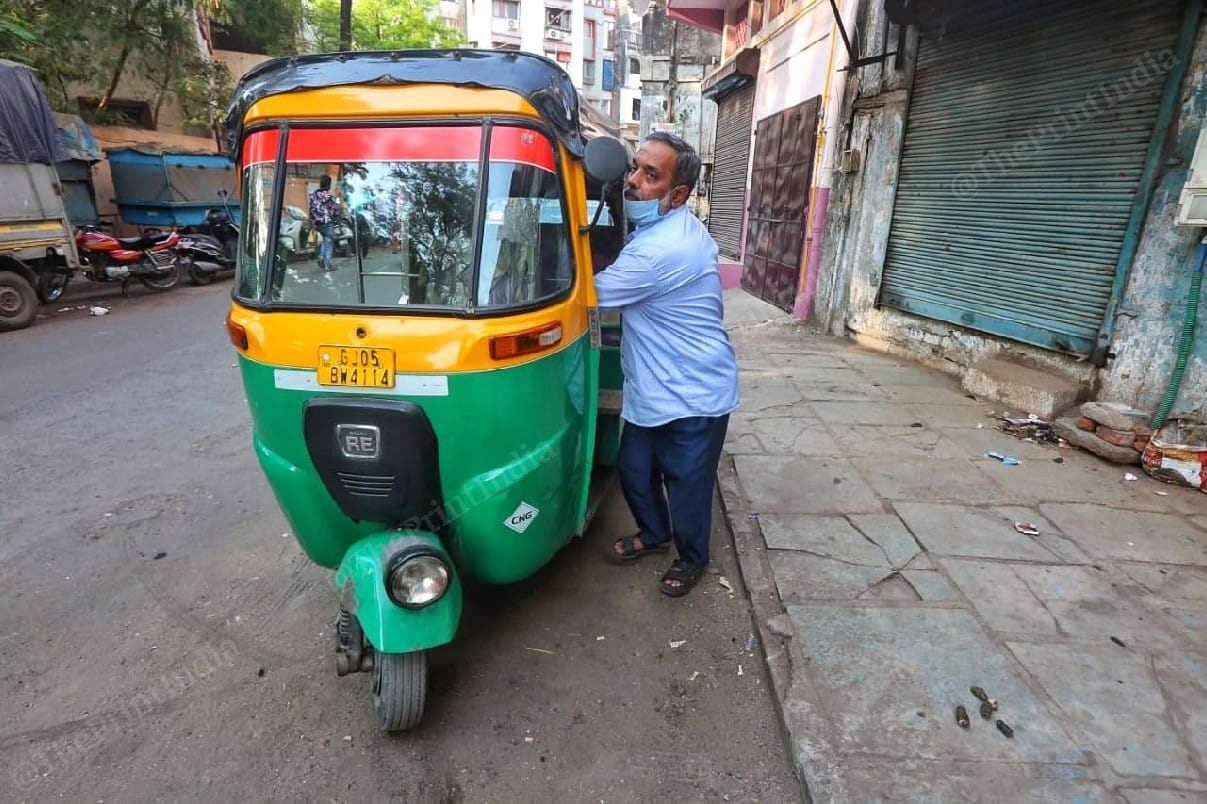
Even those who were in attendance said the officers arresting them had no clue about why the group was being arrested at the time of the raid.
“I remember asking the officers, over and over, why they were doing this, and what sections we were being booked under. One officer told me that the sections we were being booked under hadn’t been decided yet, and that he was just carrying out orders that came from above,” said Hasan, the former scientist, who resorted to asking call centres for work after the case against him.
SIMI had been banned just months before the arrest of the 127 men, in September 2001. In October 2001, Narendra Modi had assumed charge as chief minister of Gujarat.
The officer who registered the case, M.J. Pancholi, had written in his complaint that he conducted the raid because he had “received information from a senior officer” that members of SIMI would be gathered at Rajshree hall in Surat, under the guise of an education convention.
More crucially, the case was registered despite the sanction coming from the state government, as opposed to the Centre, which was required by law. The sanction to impose UAPA was granted by two section officers of the state home department, Ashok Narayan and Kuldeep Singh Laxman Das.
As the trial proceeded, the government also appointed special prosecutors to the case, one of whom, Jagrup Singh Rajput, went on to become an MLA with the BJP.
“Apart from a lack of evidence, the court also recognised that the sanction was invalid, since it came from the state and not the Centre,” said advocate Shaikh.
Of those who had been arrested, most have been left by the wayside, trying to find their feet in a country that labeled them terrorists for 20 years.
“We have been called anti-nationals and terrorists. I wish I could erase my memories of the past. But I draw strength from the verses of Sir Allama Iqbal, who once wrote: Tundī-e-bāād-e-muḳhālif se na ghabrā ai uqaab, ye to chaltī hai tujhe ūñchā udāne ke liye
(Don’t you get frightened of these furious, violent winds, Oh Eagle! These blow only to make you fly higher),” said the scientist Hasan.
(Edited by Arun Prashanth)
Also read: Over 5,000 people arrested under UAPA between 2016-2019, govt tells Rajya Sabha



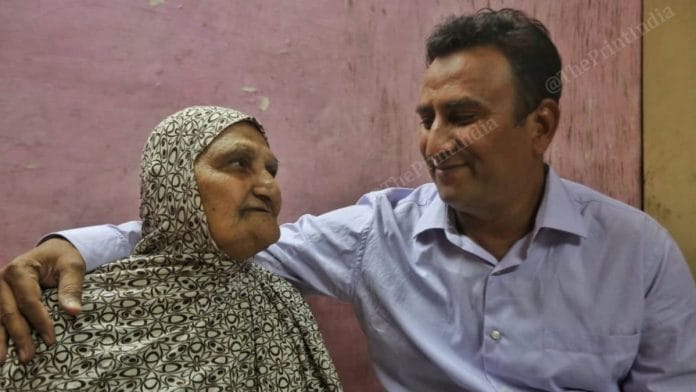



Pathetic
Why all over world especially in majority muslim countries minorities are leaving in fear of life. Why in muslim countries there is constant pressure on minorities to accept ISLAM or face death and deprevation.
Finally why in Kashmir the only muslim majority state in INDIA was ethnic cleansing of HINDUS carried out.
HINDUS believe in education and science and prosperity and don’t believe in conversion.
THE moment people who are constantly complaining decide to to forego religious intolerance towards HINDUS and start adopting modern scienctific education and population control measures they will realise that it was just a mental block and nothing else.
Napoleon : they will never change and will never miss a chance to suppress you neither they will change their mind or heart , it is upto you to earn your respect , either fight or die.
Respect is never given it is earned by force or peace .